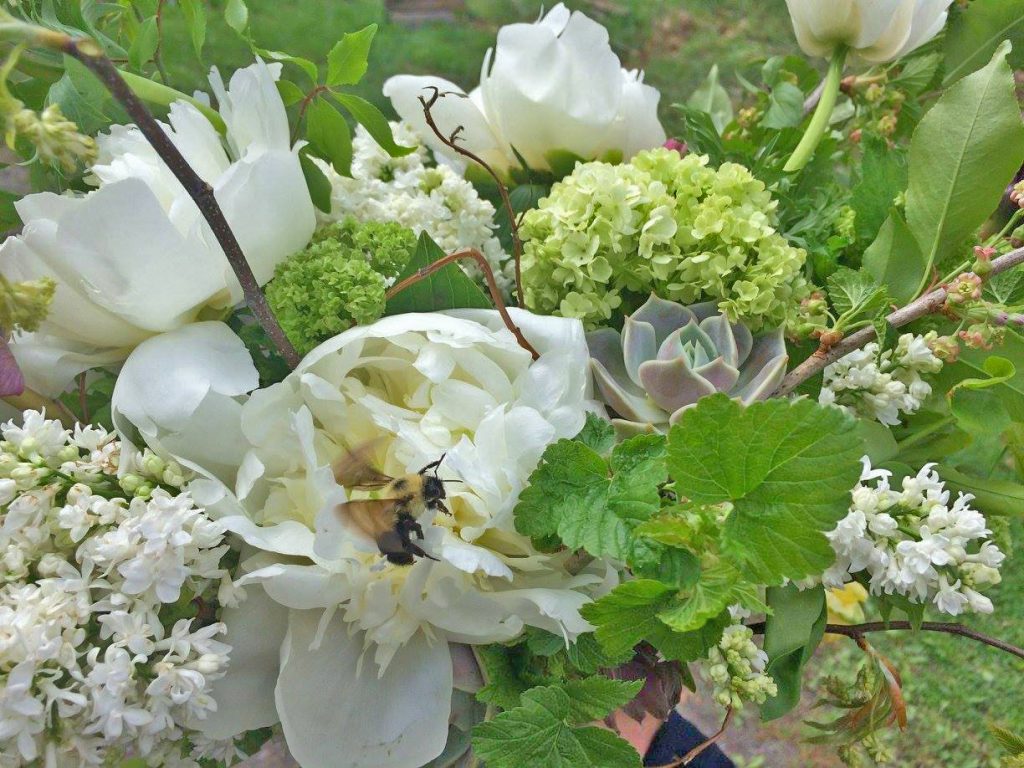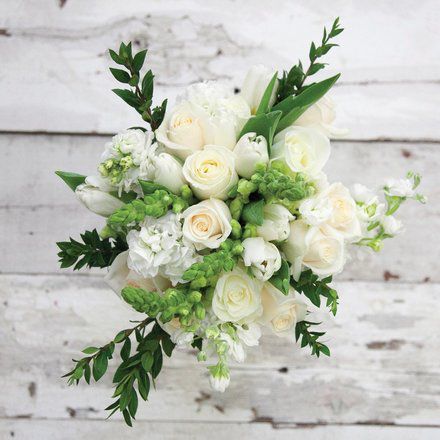Sending flowers is a gesture of love and thoughtfulness. When people are ill or recovering, those who wish to offer their support often send flowers. Flowers are also sent to places of worship when people die as a symbol of support to grieving families left behind.

There is a wide range of responses to receiving flowers as a gift. Many welcome the gesture of support and solidarity unequivocally. Some poignantly note their perishability. Still others, while moved, may be taken up with more immediate and pressing day-to-day concerns like childcare and work obligations.
Marina Michahelles owns Shoving Leopard Farm and speaks to the value of flowers in times of happiness, uncertainty and sadness. She encourages people to consider flowers on a daily basis as an expression of many things. She explains:
“Flowers can be seen as non-essential -so what do they provide? Who deserves them? Everyone. Flowers represent taking care of the environment, and of bringing beauty and attention to space."

While some note irony in the perishability of flowers, Give InKind asked Michahelles about this. She paused to consider:
“Flowers are perishable things. If it is a grieving process, in a certain way, flowers can match the transition. Some will fade. Some will continue to be bold. There is a kind of pairing and slowing up. A time for reflection."
Michahelles encourages those who wish to send flowers to consider the specific circumstances of the patient. After a death, grieving families may prefer a memorial donation in lieu of flowers.
For visitors to houses where flowers are being sent, go ahead and change the water in the arrangements. This makes the flowers last longer. It also minimizes unpleasant odor that comes from flowers sitting in still water for too long. This is a very helpful thing to do.
For cancer patients undergoing chemotherapy, consider sending flowers without a fragrance. Nausea from the treatment can be exacerbated by strong fragrances, so consider Tulips or Bachelor Buttons. For patients with dementia or homes where small children may be present, be certain not to send flowers that may be poisonous if ingested. Avoid Delphinium. Many intensive care units do not permit flowers at all. Make sure to check with individual hospitals about their rules and procedures. And for any recipient, consider low pollen flowers for low maintenance.

National floral networks will be able to help you make informed suggestions about individualized floral arrangements. For small local growers, consider Slow Flowers. Other options include FTD and more. Most importantly, remember that no gesture of comfort, no matter how small, is ever forgotten by those in need.
Photographs Courtesy of Shoving Leopard Farm. Used with Permission.
Helpful Products
Give InKind does not provide medical advice, diagnosis, or treatment. We have an affiliate relationship with many of the advertisers on our site, and may receive a commission from any products purchased from links in this article. See Terms & Conditions.
